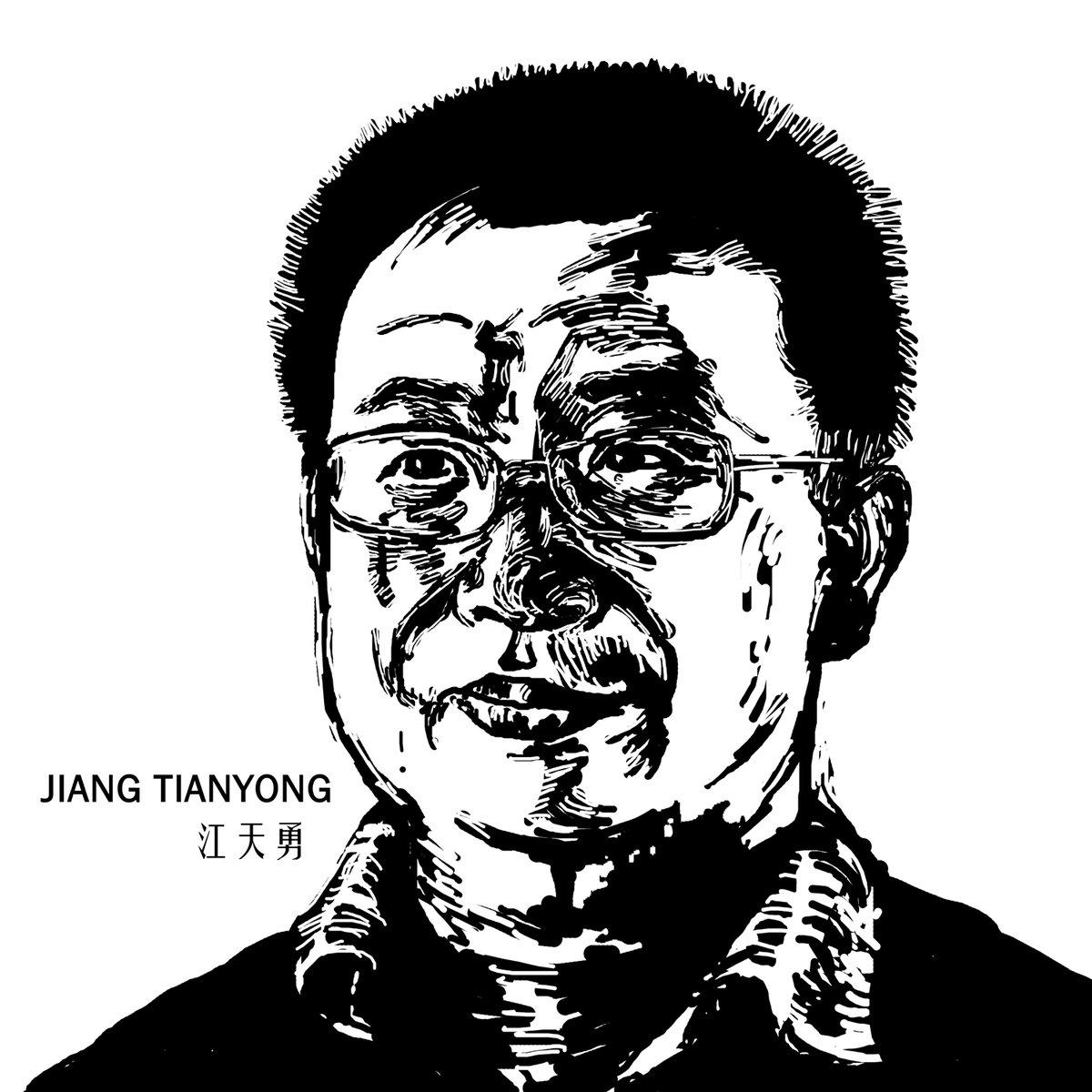Activist and former rights lawyer Jiang Tianyong was tried for inciting subversion in Changsha on Tuesday, pleading guilty under what supporters suspect was heavy coercion. Jiang disappeared last November while visiting the family of Xie Yang, a rights lawyer detained in the sweeping Black Friday crackdown in 2015 who has since been tried for inciting subversion and is now reportedly under house arrest. In March, Jiang was publicly accused of helping fabricate Xie’s graphic accounts of torture in detention, and confessed to this on state TV, again under suspected coercion. The Guardian’s Tom Phillips reported on his trial, and his claims of being led astray by foreign instigators:
“I’m ashamed of it,” Jiang told the court, according to the English-language China Daily, which sent a correspondent to cover proceedings in a sign of Beijing’s determination to shape the narrative around the prosecution.
According to the state-run broadsheet, Jiang admitted to attending overseas training sessions where he was encouraged to reject China’s political system and ruling party. “So I wanted to make a change,” he reportedly said.
[…] In an online video released by the court, Jiang appears asking for clemency: “Please give me another chance to be a human being … and to make up for my wrongdoings … Once I am free I will never return to my old ways … I sincerely ask the court to set me on a path towards the sunshine.”
[…] In a front-page story, apparently timed to coincide with Tuesday’s trial, the China Daily quoted Chinese academics who heaped praise on the “transformative changes” witnessed since Xi became leader in late 2012. “China has made great progress in advancing the rule of law,” claimed Jiang Guohua, a law professor. [Source]
UC Berkeley law professor Stanley Lubman offered a more skeptical assessment at ChinaFile earlier this month, writing that progress exists “more in policy than in practice.”
Jiang’s treatment now and in March exemplifies authorities’ more aggressive demonizing of so-called troublemakers, itself part of a broader trend of more vigorously asserting control over the media and wielding it as an instrument of power. Televised confessions and courtroom appearances, often invoking “hostile foreign forces,” have been a major part of this drive in cases involving labor activists and others as well as the Black Friday detainees. Politically vulnerable figures have increasingly been taking pre-emptive measures against coerced confessions and other statements. Against this backdrop, many are skeptical of Jiang’s trial and its ostensible openness, as AFP’s Joanna Chiu reported:
Authorities did not inform family members of the trial date, said Jiang’s wife Jin Bianling, who currently lives in the US, where she fled in 2013 to escape harassment from Chinese authorities.
“The trial is a choreographed script,” she told AFP.
Calling the trial a “sham”, Amnesty International China researcher William Nee said Jiang’s treatment “epitomises many of the worrying aspects of the lawyers’ crackdown”.
Nee said this included the “harassment of family members, not letting the accused access their lawyer, prosecution based on charges that don’t comply with international standards, blocking the public from attending, all while presenting the trial as real on social media”. [Source]
On Twitter, the American Bar Association’s Terence Halliday commented that “‘ashamed’ is the word of a tortured person, not the authentic confession of the person I have known for many years.” Similarly, Human Rights Watch’s Sophie Richardson wrote:
Before he was detained last November, Chinese human rights lawyer Jiang Tianyong warned his friends: “If I say things I don’t mean to when I am in jail, please must forgive me. …[Being tortured] was so painful.”
[…] The trial was indeed a “performance.” When it was underway, video clips of the proceedings were posted on the court’s official Weibo account, under which hundreds of comments quickly appeared praising the court for its fairness and transparency. But when one of Jiang’s supporters posted a comment urging his release, the post was quickly deleted.
Four days before the trial began, Henan police detained Jiang’s parents as they traveled to visit relatives, and held them incommunicado. Unexpectedly, the court’s Weibo account showed a photo of Jiang’s father listening carefully to the trial. A comment questioning the parents’ disappearance also vanished soon after it was posted.
[…] Like other Chinese activists before him, Jiang confessed only after being held incommunicado for a lengthy spell. Such “confessions” are invariably coerced, and combined with the bogus charges and the unfair trial, amount to a sham prosecution. It appears China’s authorities are as determined as ever to twist the justice system for their own ends. The court said a verdict would be announced at a later date. [Source]
The New York Times’ Chris Buckley explored the likely purpose of the performance:
The televised drama of this and similar trials served as a “shock and a warning” to other Chinese human rights advocates, said Eva Pils, a law scholar at King’s College London who studies China’s human rights lawyers.
“To a wider TV audience, it is meant to discredit human rights defenders as people who fabricate stories that smear the image of the motherland for their own personal gain or self-promotion,” Ms. Pils said by email. “Over all, it has the effect of giving one a sense that the authorities are in control of the truth.”
The party has long cast dissidents as puppets of shadowy, hostile forces backed by the West. But Mr. Xi has redoubled that effort. A few months after coming to power, he demanded a systematic offensive against Western liberal ideas such as constitutionalism, and show trials have been increasingly used to impress such warnings on the Chinese public.
“I hope that other so-called rights defenders and defense lawyers will draw lessons from my example and let this serve as a warning,” Mr. Jiang said in a statement to the Changsha Intermediate People’s Court. “Give me a chance to become a new person.” [Source]







